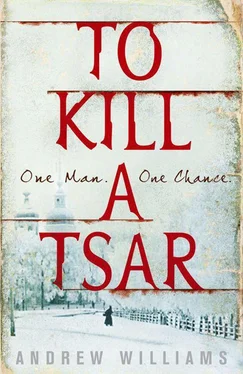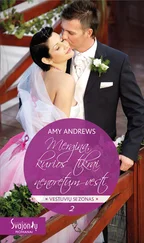‘Keep your voice down…’
‘The help he gave Valentin — and tonight he told me Grigory had broken and was giving them information. So, yes, he’s useful.’
‘Goldenberg? How does your doctor know?’
Anna hesitated. ‘From the special investigator.’
‘Dobrshinsky?’
‘Yes.’
‘When did he speak to Dobrshinsky?’
‘Two weeks ago.’
‘And did you know he was speaking to Dobrshinsky?’
‘Yes. But I trust him.’
‘You trust him?’ Mikhailov gave a short laugh: ‘You’re blind.’ He leant forward, his podgy hands together like a judge before a court. ‘Your doctor met the special investigator at his home.’
‘Why ask if you know? Please, can we talk of this later?’
‘What did your doctor tell Dobrshinky?’
‘What?’ He had pushed her too hard and her fragile temper snapped: ‘Everything, everything,’ she shouted, jumping to her feet to stand shaking with anger before him. ‘Everything. Satisfied?’
He stared at her, the colour rising to his cheeks. ‘Sit down and be quiet. What did he tell Dobrsinsky?’
She was too tired to fight him. ‘Nothing. He said nothing.’
‘You’ve taken too many risks,’ Mikhailov said. ‘You’ve forgotten your loyalty to the party.’
Oh, that’s your verdict, is it, Comrade Mikhailov, she thought with disgust.
‘It must stop. No one is more important than the party. That is the promise we made each other.’
‘It has stopped,’ she said quietly. ‘I’ve told him I can’t meet him again.’
‘Or have any contact?’
‘Didn’t I say so?’ Did he want her to write it in blood? She wanted to cry, to scream, to tear at his smug face with her nails, but she was not going to let him see how hurt she felt.
‘We must all make sacrifices,’ Mikhailov said, rising to his feet. ‘You are a good comrade, Anna.’
She said nothing but watched him cross to the door, turning to glance back at her before he slipped from the room.
Praskovia Ivanovskaia found her later that morning curled on the couch.
‘You look ill. You must go to bed at once,’ she said, blinking myopically at Anna. And she did go to bed. She lay beneath the covers in her clothes, listening to her comrades about the apartment, the thump of the press, conversation and companionable laughter. She tried not to think of Frederick, but snatches of their conversation kept forcing their way into her thoughts and she buried her head in the bedclothes, her eyes tight shut. ‘Is that what you want?’ he asked her again and again, and she groaned silently.
She rose at midday and joined the others. They must have been talking about her because the air of gaiety was forced, as if they were trying a little too hard to lift her spirits. At two o’clock there was a knock on the apartment door. Printing stopped at once, a cover was thrown over the press, type and papers were cleared away and the sitting-room door was locked. Anna was sent to receive their visitor. She was surprised to find Sophia Perovskaya on the doorstep. Party members were discouraged from visiting the little print works unless their business was approved by the committee. Anna led her friend into the kitchen and introduced her to the others and they made tea and spoke for a while of the arrests, of foreign newspaper reports and the fear of more attacks that still gripped the city. But Sophia Perovskaya was uneasy, her tiny hands turning in her lap or playing with her glass. The others must have sensed it too because the conversation began to peter out, the awkward silences to lengthen, and there was something close to a collective sigh of relief when she turned to Anna at last and announced that she had come with a message from the executive committee.
‘We met this morning, Annushka,’ she said, when the others had gone.
‘Oh? And did you volunteer or were you instructed to deliver its message?’ asked Anna acerbically, her eyes fixed on her friend’s face.
‘The committee thought it best if I spoke to you,’ she replied, reddening a little. ‘It would like you to take Stepan Khalturin to Kiev. His nerves are lacerated since the explosion. He’s close to a breakdown. After all those weeks at the palace he thinks he’s failed us. He can’t be trusted.’
‘Ha!’ Anna exclaimed with an angry wave. ‘So the committee wants both of us out of the way.’
‘No, Annushka, no.’ Sophia leant forward for her hand but Anna refused to give it.
‘Don’t pretend this has nothing to do with Frederick.’
‘Alexander has explained. He thinks it will be easier—’
‘For whom?’
‘For you. Someone must go with Khalturin,’ said Sophia firmly. ‘It is the decision of the executive committee.’
‘I give him up and now the party wants to punish me,’ Anna replied, her voice strained and unhappy. And this time she did not resist when Sophia picked up her hand and gave it a gentle squeeze.
‘You’re a true comrade, Annushka. There is no one I trust more. It will only be for a few weeks.’ And, rising from her chair, she came to stand beside Anna, an arm around her shoulders.
‘He loves me, you know.’ Anna began to cry, her tears pattering on to the rough table.
‘Shshhhh, Annushka.’
But Anna could not control herself any longer. Her small frame shaking, she leant forward to place her head on the table and wept.
It was an excellent disguise. He looked every inch the gauche impoverished student of the sort to be seen on the streets of the island every day. A good student, but a very poor police informer. Hadfield had spotted him lurking in the yard opposite when he left his apartment in the morning, and he was conscious of being followed to his surgery and then to the Nikolaevsky later that day. And the poor fellow was standing opposite the hospital entrance in the evening, ludicrously conspicuous beneath a street lamp, stamping his feet, slapping his sides, frozen to the marrow. His dogged persistence deserved recognition. Taking a professional card from his medical bag, Hadfield scribbled the name of a restaurant on the Nevsky Prospekt on the back and tipped a hospital porter to present it to him with his compliments.
George Dobson was in the best of humours, delicately executing a conversational pas de deux over dinner that led them from the politics of terror to the theatre — ‘quite as senseless and brutal’ — and to a paeon of praise for ‘his lovely’ dancer, Natalya. He had arranged to meet her after the performance at the Mariinsky and was anxious not to keep her waiting, unapologetically glancing at his pocket watch every few minutes. ‘She is so upset if I’m late. Hope you don’t mind, old fellow.’
For once the correspondent’s acute powers of observation deserted him and he did not register that Hadfield was out of sorts and drinking heavily. By the time they rose from the table, he was the worse for wear for wine and Dobson was obliged to take his arm and lead him from the restaurant. Hadfield was too befuddled to notice if his police shadow was waiting on Nevsky and quite past caring. He took a cab as far as the English Embankment, then crossed the river by a well worn path over the ice. The freezing air helped clear the claret fumes but not the thoughts of her that filled every idle minute of his day.
It was a little after eleven o’clock when he reached the pier below Line 7 and climbed unsteadily to the embankment. At the top of the steps, he slipped and almost fell back, grasping the wall, his heart racing. Bloody fool. A broken neck wouldn’t help. He took a deep breath and walked on, anxious to reach home and bring the day to a close, head bent, concentrating hard on an imaginary line. For once he did not take the precaution of walking in the middle of the street, and after a few paces he was startled by a man who stepped sharply from the darkness of a doorway into his path. Sober in an instant, his body tensed in readiness to fight. Then he recognised the slight figure of his police shadow and he laughed with relief.
Читать дальше












